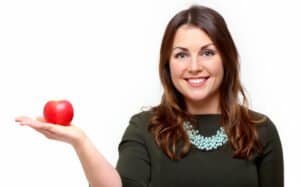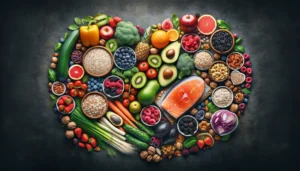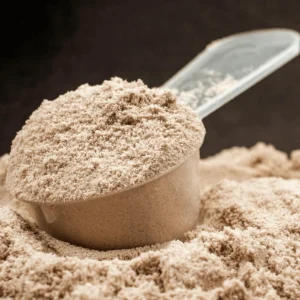Ah the old saying “you can get everything you need from a varied balanced diet”. It’s not true for many people. There’s one point that I wish to hit home at the beginning of this post and at the end. There is a difference between eating/ supplementing to prevent disease and eating/ supplementing to optimise health. It’s the difference between suriving and thriving.
2 supplements many of us need to take
 Vitamin D supplement (15 micrograms a day when living in Ireland from Halloween to Paddy’s Day, but possibly all year round).
Vitamin D supplement (15 micrograms a day when living in Ireland from Halloween to Paddy’s Day, but possibly all year round).
Why:
Vitamin D can be produced in our skin. The most effective way of making vitamin D is 10-to-15 minutes of direct sunlight to our skin from late March until September. We cannot make it during the winter months. Vitamin D is found in foods like oily fish, liver, eggs and fortified foods (some dairy and breakfast cereals). It’s needed for many things including supporting the immune system, bone health and muscle function. It’s also linked to conditions and disease such as depression, type 2 diabetes and autoimmune diseases. About half the population are thought to be deficient in vitamin D. Only 15% of women and 4% of men take a daily vitamin D supplement.
 Folic acid supplement (400 microgram a day if you are female and of child bearing age, normally first period to menopause).
Folic acid supplement (400 microgram a day if you are female and of child bearing age, normally first period to menopause).
Why:
It’s important to take folic acid all the time because folic acid is needed to support the effective closure of the neural tube during pregnancy, which happens at approximately 21 to 28 days after conception. Please note 2 important points here. This is before most women know they’re pregnant and studies suggest that 1 in 2 pregnancies are not planned. Since the early 1990s it has been known that folic acid supplementation 12 weeks before and during the early stages of pregnancy can reduce the risk of the fetus developing NTDs (neural tube defects) by 70%. Despite this, only 19 to 44% of women are taking folic acid before pregnancy.
Examples of times you might require a supplement
 Other situations include when you might exclude a particular food or foods for whatever reason e.g. you don’t eat oily fish and might need an omega 3 supplement, if you follow a vegan lifestyle and require supplements to fill in nutritional gaps
Other situations include when you might exclude a particular food or foods for whatever reason e.g. you don’t eat oily fish and might need an omega 3 supplement, if you follow a vegan lifestyle and require supplements to fill in nutritional gaps
 Also, you might be taking a medication which impacts a vitamin or mineral level within the body. For example, if you are taking metformin you may have been advised to also take a vitamin B12 supplement (as your doctor!)
Also, you might be taking a medication which impacts a vitamin or mineral level within the body. For example, if you are taking metformin you may have been advised to also take a vitamin B12 supplement (as your doctor!)
 You may have a condition, disease or scenario where a particular supplement has been shown to be helpful. The examples here are plentiful. A Registered Dietitian will have done a full assessment, and based on this, will have suggested any supplements that may help.
You may have a condition, disease or scenario where a particular supplement has been shown to be helpful. The examples here are plentiful. A Registered Dietitian will have done a full assessment, and based on this, will have suggested any supplements that may help.
 You have been shown to be deficient e.g. iron. Now, the doctor will usually test for what they can test for. This isn’t much and usually includes iron (e.g. Hb, ferritin), vitamin B12, folate (aka folic acid) and vitamin D. The list isn’t endless!
You have been shown to be deficient e.g. iron. Now, the doctor will usually test for what they can test for. This isn’t much and usually includes iron (e.g. Hb, ferritin), vitamin B12, folate (aka folic acid) and vitamin D. The list isn’t endless!
 The intake of certain vitamins and minerals has been shown to be poor in Ireland. For example,
The intake of certain vitamins and minerals has been shown to be poor in Ireland. For example,
- selenium: nearly 1 in 2 Irish adults did not meet the recommended adequate intake for selenium
- iodine: 1 in 4 adults were seen to have below estimated average requirements for iodine which increased to 3 in 4 women of childbearing age
- zinc: nearly 2 in 3 participants are at risk of inadequate zinc intake and 1 in 3 may be zinc deficient
 Nonetheless, too much of something can be as bad as too little. Don’t go munching on supplements willy nilly. Instead, talk to a health care professional and make an informed decision.
Nonetheless, too much of something can be as bad as too little. Don’t go munching on supplements willy nilly. Instead, talk to a health care professional and make an informed decision.
Please do remember that there’s a BIG difference between eating/ supplementing to avoid disease and eating/ supplementing to optimise health. Some supplements may not be needed to prevent conditions, disease or illhealth, but rather to enhance health e.g. creatine for cognitive function or memory, caffeine for performance in sport, whey protein for muscle building etc…
Book in to chat with a Registered Dietitian for your supplement guide
 We’re here to help should you wish to get some guidance. Book in with a Registered Dietitian today.
We’re here to help should you wish to get some guidance. Book in with a Registered Dietitian today.











